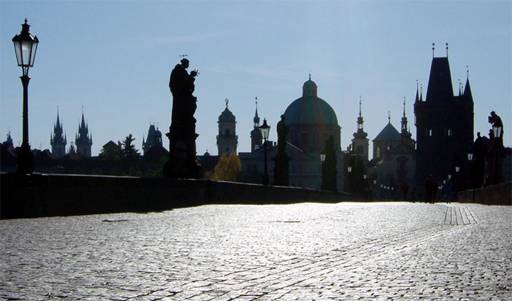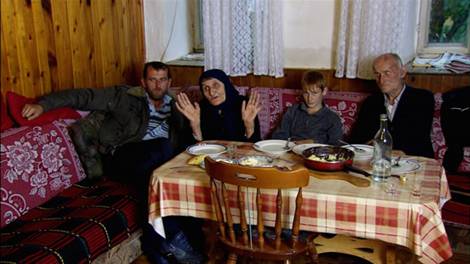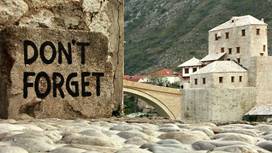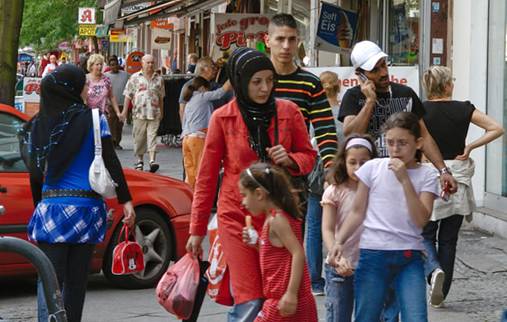Czechs, Swedes and how the Balkans might miss another chance
Dear friends of ESI,
In recent weeks documentary films from the award-winning Return to Europe series have been shown in cities across Europe. EU Enlargement Commissioner Olli Rehn introduced them in the Commission headquarters in Brussels as "a compelling documentary series." Former Prime Minister Giuliano Amato wrote that "these are documentaries all citizens of the European Union should have the opportunity to see."
If you are in Pristina or Skopje this week you can attend a screening of our Kosovo film (in English). In January 2009 our films will be shown in Budapest, Brussels, Istanbul and other cities.
If you would like to be informed about the upcoming release of the Return to Europe series or individual films on DVD (in English and German), please let us know.
 |
Czechs, Swedes and the Balkans
In 1648, in the last clash of a thirty-year confessional war, a Swedish army reached Prague, captured its castle, and looted its treasures.
Fortunately things have changed in Europe. When delegations from Stockholm came to Prague this autumn to discuss the future of EU enlargement, a senior Czech policy maker told us recently, Protestant Swedes and Catholic Czechs "agreed 99 percent of the time."
In 2009 Czechs and Swedes will hold the rotating EU presidency. This is good news for the Balkans: both countries support enlargement and would like to see the Balkans make progress in 2009.
Committed EU presidencies can make a difference, as Germany and Finland (in 1999) and Greece (in 2003) have shown. "We expect four Balkan applications for EU membership on our table next year", Czech officials told ESI in Prague, referring to Montenegro, Albania, Serbia and Bosnia-Herzegovina (See also Rumeli Observer: The message from Prague is loud and clear). But will the Balkan countries play their cards right?
 |
|
On the road to EU membership: Family in Northern Montenegro |
Montenegro moves
The situation is most clear-cut for Montenegro, the smallest of the Western Balkan states. This week, after one year of preparation and intense lobbying in EU capitals, Prime Minister Milo Djukanovic traveled to Paris and submitted an application for EU membership.
This allows the next European Council (in March 2009) to task the European Commission to prepare an opinion (avis) on the application. Following an evaluation of this opinion Montenegro could become an official candidate for membership later in 2009.
 |
 |
|
Bosnia |
Serbia |
Never miss a chance to miss a chance
Montenegro could be the only Balkan state to achieve candidate status in 2009, however.
The Serbia EU process is bogged down by Belgrade's inability to deliver Bosnian-Serb war time commander Ratko Mladic to the ICTY. The Dutch government insists that Serbia cannot become an official EU candidate until Mladic is delivered to The Hague.
The Albanian government has long ignored calls from Albanian civil society to follow in Montenegro's footsteps. Following the Montenegrin application, however, Tirana is feeling renewed pressure to apply. It remains to be seen if it will actually manage to do so in time for the March 2009 EU Council.
Finally, the Bosnian political elite is showing that it rarely misses a chance to miss a chance. Instead of forging consensus on how to advance towards EU membership – the one policy goal on which all ethnic groups agree and the best way to push through overdue institutional reforms – politicians and analysts in Sarajevo are warning Western media to distrust all appearances of progress.
As the New York Times noted this week, "talk of the prospect of another war is creeping into conversations" in Sarajevo. In July 2008 former High Representative Paddy Ashdown wrote that "Bosnia is on the edge again": "You do not need imagination", he added, "to know what happens when things go wrong in Bosnia – a memory ought to be enough". In October 2008 Richard Holbrooke and Paddy Ashdown warned that "It is time to pay attention to Bosnia again, if we don't want things to get very nasty quickly. By now, we should all know the price of that." (see Rumeli Observer: Why the Turks could not have built the bridge in Mostar – reflection on Bosnia).
In fact, the probability of renewed fighting in Bosnia is no higher than it is in Cyprus: close to zero. Even Paddy Ashdown noted in July that "I do not believe Bosnia is likely to go back to conflict; most of its people are just too war-weary." This explains the emerging consensus inside the EU to finally dismantle the protectorate powers created for very different post-war conditions.
However, some Bosnian politicians (and outside observers) believe that talking up the threat of possible conflict is the only way to get the world to pay attention. The tragic irony is that if they succeed it is possible that by the end of 2009 all other Balkan states will have overtaken Bosnia on the road to EU membership. This would be horrible news for the country that suffered most during the break-up of former Yugoslavia. It would also make consensus-building on necessary reforms even more difficult.
Whitelisting Macedonia?
All Western Balkan governments also hope to achieve visa-free travel to the EU in 2009. On 24 November 2008 the European Commission presented its assessments of the progress in different Balkan countries relating to visa free travel.
The Commission noted that Macedonia is most advanced and has "made very good progress." Serbia and Montenegro make up a second group, Albania and Bosnia and Herzegovina are behind the others (see excerpts from the Commission assessments). Some EU member states, however, especially Germany, remained skeptical even about Macedonia, the regional frontrunner. The debate on visa liberalization promises to be as intense in 2009 as it has been this year.
 |
|
Kreuzberg – Berlin |
Germans and Turks
Did you know that:
- in a 2007 study 29 percent of Germans said it should be forbidden for Muslims to immigrate to Germany?
- the number of Muslims in Germany who described themselves as "very religious" rose from 7.6 percent in 2000 to 28.1 percent in 2005?
- 28 percent of kindergarteners in Berlin do not speak German as their mother tongue?
- 16 percent of Germans supported Turkey's EU accession in a 2007 survey but 65 percent nonetheless expected Turkey to join the EU?
For more Striking Facts on Germans and Turks and additional reading suggestions please check our latest Picture Story.
For more on the German debate on Turkey visit our website next week.
Many best wishes,
![]()
Gerald Knaus

Gerald Knaus
- ESI Background Paper: The White List Project. EU Policies on Visa-Free Travel for the Western Balkans (1 November 2008)
- First assessment of progress on the visa roadmaps (10 December 2008)
- Excerpts from the Commission assessments (10 December 2008)
- ESI picture story: Germans and Turks – Striking facts (November 2008)
- Rumeli Observer BLOG: The 10,000 hour rule, the Ahtisaari test and other sticky concepts
- Rumeli Observer BLOG: The message from Prague is loud and clear
- Rumeli Observer BLOG: Abolish the summer vacation: a realistic Big Goal for Kosovo
